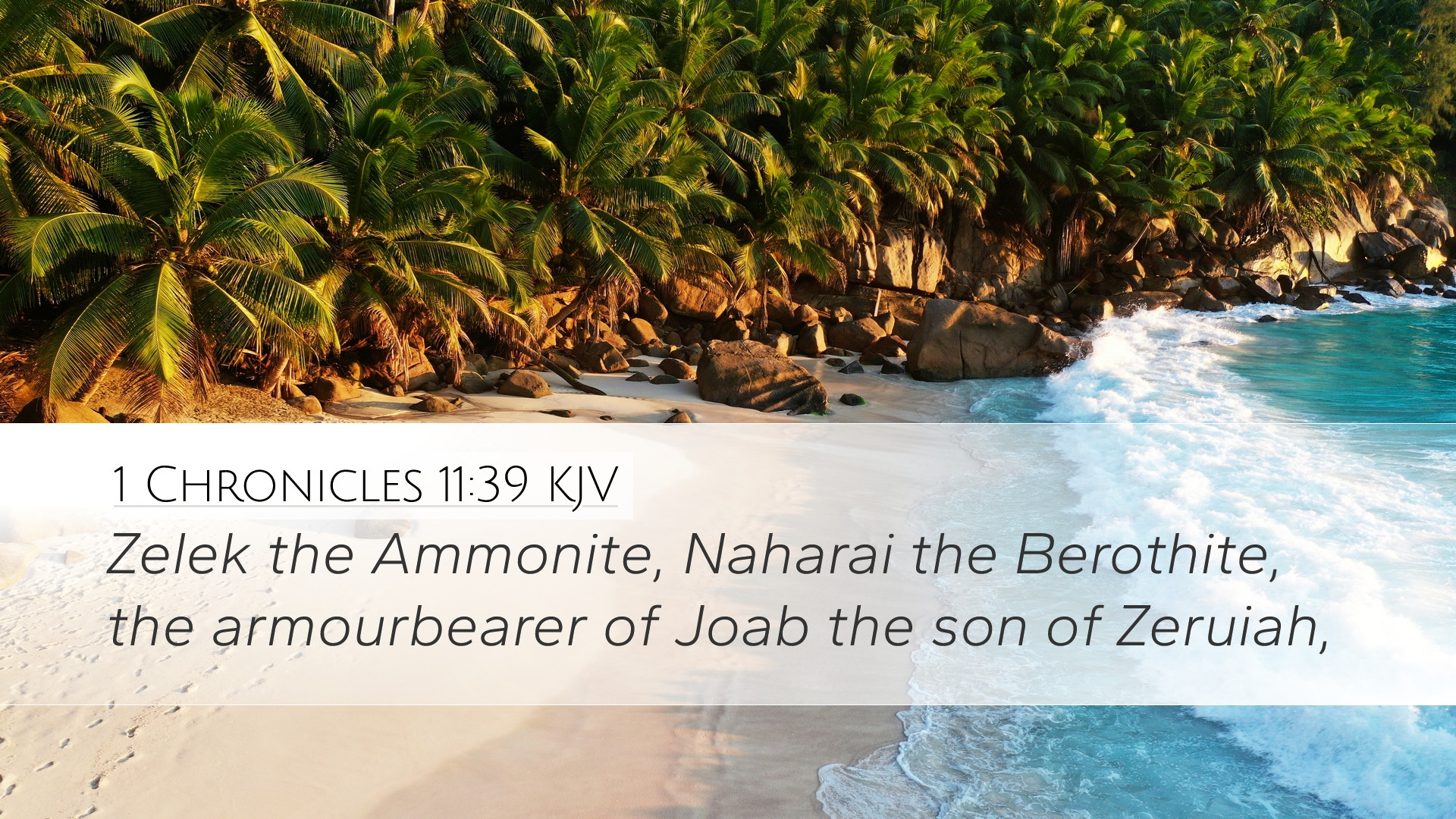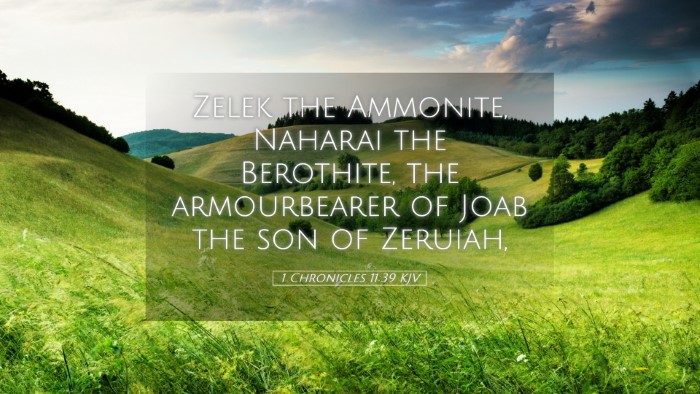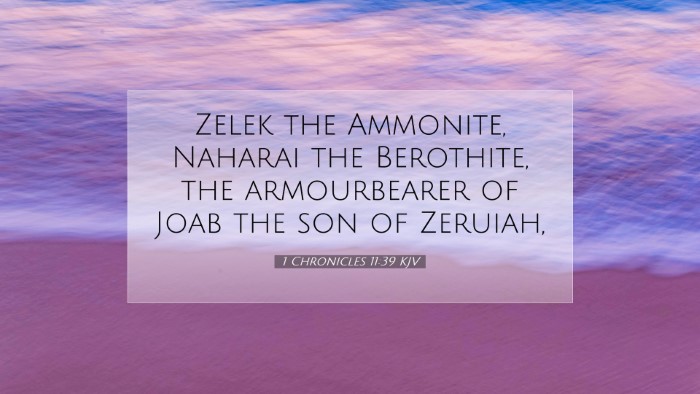Commentary on 1 Chronicles 11:39
1 Chronicles 11:39 states:
"And Zelek the Ammonite, and Naharai the Beerothite, the armor-bearers of Joab the son of Zeruiah."
Introduction
This verse, found in the context of documenting the mighty men who served under King David, highlights the inclusion of individuals from different backgrounds—specifically, the Ammonite and the Beerothite. This serves to emphasize the diverse composition of David's military leadership and the unity found in service to God.
Insights from Public Domain Commentaries
Matthew Henry
Matthew Henry focuses on the importance of recognizing the roles of both Zelek and Naharai as armor-bearers for Joab. In his commentary, he notes:
- The Role of Armor-Bearers: Armor-bearers held a significant position in ancient warfare. They were trusted individuals, often demonstrating loyalty and skill. Their role was not just servile but crucial in battle, which signifies the elevated status of Joab as a leader.
- Diversity in Leadership: Henry emphasizes that the mention of Zelek the Ammonite reflects God's ability to use individuals from various nations and ethnicities in His service. This foreshadows the broader inclusion of Gentiles into the promise of God, a theme fully realized in the New Testament.
Albert Barnes
Albert Barnes elaborates on the historical context and the significance of these individuals in his work:
- Zelek the Ammonite: Barnes describes Zelek as a representation of those from hostile nations who were willing to serve King David. This highlights the transformative nature of David's reign, where even former enemies could contribute to the kingdom's strength.
- Naharai the Beerothite: Barnes notes that Beeroth was a city associated with the Gibeonites. Naharai’s inclusion hints at David's diplomatic relations with neighboring peoples and the integration of those previously marginalized.
- Valor and Faithfulness: Barnes encourages readers to reflect on the bravery of these armor-bearers in recognizing that faithful service often transcends national boundaries, illustrating a kingdom built on loyalty to God's anointed.
Adam Clarke
Adam Clarke provides a more detailed exegesis regarding the implications of the names and what they illustrate concerning David's rule:
- Symbol of Loyalty: Clarke highlights that the title 'armor-bearer' symbolizes not only loyalty but also a protective nature, underscoring the allegiance these men had towards Joab and ultimately David.
- Ammonites and Beerothites: The inclusion of these names serves as a reminder that God’s providence draws together different people to accomplish His purposes—a theory consistent throughout Scripture, pointing to a universal calling for all nations in the salvation narrative.
- A Call to Unity: Clarke argues that this verse serves as a call for contemporary believers to embrace unity in diversity, mirroring the early church, where individuals from various backgrounds united under the lordship of Christ.
Theological Reflections
The mention of Zelek the Ammonite and Naharai the Beerothite in 1 Chronicles 11:39 encapsulates essential theological principles relevant to pastors, students, and scholars today:
- The Kingdom of God is Inclusive: This passage illustrates that God’s kingdom is made up of individuals from all backgrounds. This expectation should shape our understanding of church membership and the body of Christ, encouraging inclusivity within communities of faith.
- Service and Loyalty: The role of an armor-bearer parallels the Christian call to support and uplift one another in ministry. The example set by these men inspires believers to faithfully serve under God’s appointed leaders, choosing loyalty as a guiding principle in their lives.
- Historical Context: Understanding the historical and cultural settings of biblical texts enhances theological exploration. The diverse backgrounds of David's warriors serve to illustrate the complexities of God’s plan in salvation history.
Conclusion
1 Chronicles 11:39 is not merely a catalogue of names but a powerful reminder of God’s ability to unite people for His purposes. The diverse backgrounds of Zelek and Naharai enrich the narrative of David’s reign, highlighting themes of loyalty, diversity, and inclusivity within the context of God’s eternal kingdom. As we reflect upon this verse, may we strive to emulate the spirit of service and unity demonstrated by those who served faithfully under King David.


